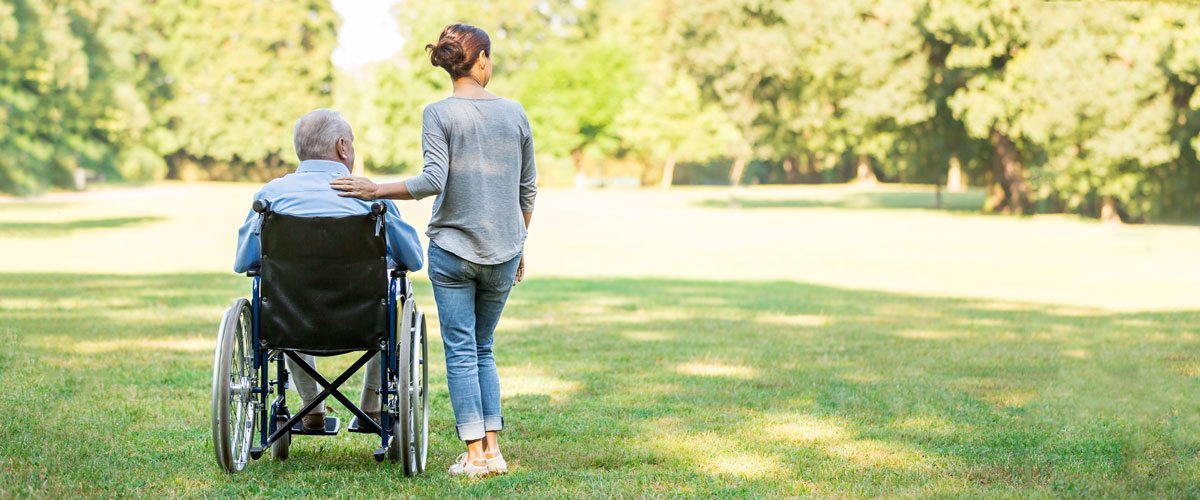part 2 of a series
The stress of living with someone that has a chronic illness!
Author: Dr. Julie. Sorenson, DMFT, MA, LPC
Discovering Your Loved One is Ill
Living with someone that is ill can challenge a relationship. Sitting in the doctor's office or receiving a call your loved one has a chronic illness can be life-altering. Chronic disease doesn't just affect the person living with the diagnosis but the entire family unit. When a loved one is ill, a family member or friend will often step up to support their loved one suffering. According to the National Alliance for Caregiving and AARP, 44 million people in the United States take care of their ill spouse, parent, child, or friend. They are doing this selflessly and may be silently suffering from stress.
Having added challenge of chronic illness can take a toll on the relationship, adding additional stress to the caretaker. It is essential to look at the 4 A's of stress management.
- Avoiding the Stressors
- Adapting the Stress
- Altering the Stress
- Accepting the Stress
Couples need to adapt to the new life, and navigating through the stress of a chronic illness within the relationship could deepen the relationship. The chronic disease makes life unpredictable. Things can change and fluctuate from hour to hour, day to day, and health can dramatically change. Here are some suggestions to assist in adapting to the diagnosis:
- Recognizing Grief Together
- Maneuvering Problems Together by proactively problem-solving potential problems that could arise.
- Learning to appreciate the new normal.
- Communication is Key
- It's okay to ask for help.
it is crucial for caretakers to take care of themselves
Caregivers devote their time to others who cannot take care of themselves. Some tasks that a caretaker may experience each day include shopping, cleaning, transportation, feeding, bathing, dressing, walking, cooking, coordinating medical care, or managing a person's finances. Providing these tasks for another person shows love, but it can come with exhaustion as a price tag. Typically taking care of someone can be done 24 hours a day, seven days a week, with no breaks or pay. Caretakers overlook their needs and can burn out and have stress and anxiety. Potentially, caretakers may not spend time with other friends or family members, making them feel isolated. However, some think caring for a loved one is profoundly fulfilling. It is just as crucial for the caretaker to remember that they must take care of their needs and wants.
Often caregivers will forget to take care of themselves. On top of this, they are exposed to other people's trauma which can cause compassion fatigue. With compassion fatigue, you can experience exhaustion, irritability, decreased sense of personal purpose, and an emotional disconnect. This is often followed by feelings of burnout. According to the World Health Organization, burnout is chronic stress which can cause a loss of identity and diminishing feelings of pleasure. If you are a caretaker, create a list of activities you enjoy doing. Schedule at least 20-60 minutes daily to do something for yourself. Please take the opportunity to contact a counselor so they can provide you with healthy coping skills, meditations, breathing techniques, and even a list of activities for you to try to find daily enjoyment.
It is healthy to have healthy conversations with your partner to determine what household chores they still can handle. Allowing yourself permission that the house may not be as tidy and the laundry may pile up gives some stress relief and a good form of self-care. Remember, you don't need to be a super caregiver, which can lead to burnout. Communication is essential to allow each member involved to express their selves. Good conversations to have for self-care are.
- This illness affects me because…..
- I am here for you, but I also have needs.
- I still need to feel a sense of connectedness. What do you need?
- I need to give myself time daily to ensure my needs are met too.
- Our life is changing, but what are some non-negotiables (examples, dinner at a specific time, movie night, things from life before you would like to continue, if possible)
- I'm scared too.
- I miss how things used to be, but we will get through this together.
It is vital to communicate your thoughts and feelings with your loved one who is sick. They may be consumed with the illness and how to get better; they may not think about how it affects their loved ones. All people in the family unit are making changes and feeling emotions. No one should go through the feelings alone. It is okay to share your thoughts, and it is a form of self-care.
Grieving the Loss of How Life Used to Be
Many people that care for others feel that they have a loss of identity as they may have shifted their lifestyles overnight or over time. The person caring for their loved one may lose energy because they tackle household chores that used to be shared. They may not be going to work, have quit their job, or have taken a leave of absence.
What made them feel like they had a purpose may have shifted, and they may be trying to figure out who they are now. It is okay not to be okay and not feel as strong as you appear.
There is a shift in the relationship, causing all involved to go through a grieving process. Couples could lose interest in intimacy as they focus on caring for their loved one or the illness, feeling a loss of attention within the relationship. Sometimes couples can't spend time doing things they once loved and may lose social connections, leading to loneliness. The illness sometimes consumes all aspects of their lives, causing a loss of how life used to be and causing feeling emotionally and emotionally drained trying to navigate this new way of life.
When couples go through a grieving process, sometimes they sit in pain in silence, causing them to feel more alone and disconnected from their partner. Researchers determined frequently, the caretaker doesn't communicate the burden they find themselves in because they don't want to hurt their loved ones (Willard, K, 2020). According to Willard, 2020 caregivers often feel forgotten because family and friends call to check on the ill person, not realizing the toll it takes on the caregiver.
Another thing that could help you is a caretaker support group. A small support group may allow you to feel as though you aren't alone and that other people have the same feelings, normalizing your emotions. Your Dr. or counselor may have contact information about finding a support group. You don't have to go through this alone, and it is okay to ask for help, to let your partner know how you feel, and to communicate your needs. Just as the person living with the illness may have big emotions and feelings about their diagnosis, it is okay for the caretaker to express their feelings as well. Bottling up emotions isn't healthy and could lead to more feelings of loneliness, being overwhelmed, exhaustion, and depression. Remember if it is becoming difficult to navigate through this new way of life, counselors are available to assist maneuvering through the changes.
References
Willard, K, 2019 Chronic Illness and Couples. Keep love alive, Psychology Today
Willard, K, 2020, Chronic Illness and Relationships. When romantic partners are caregivers, Psychology Today



